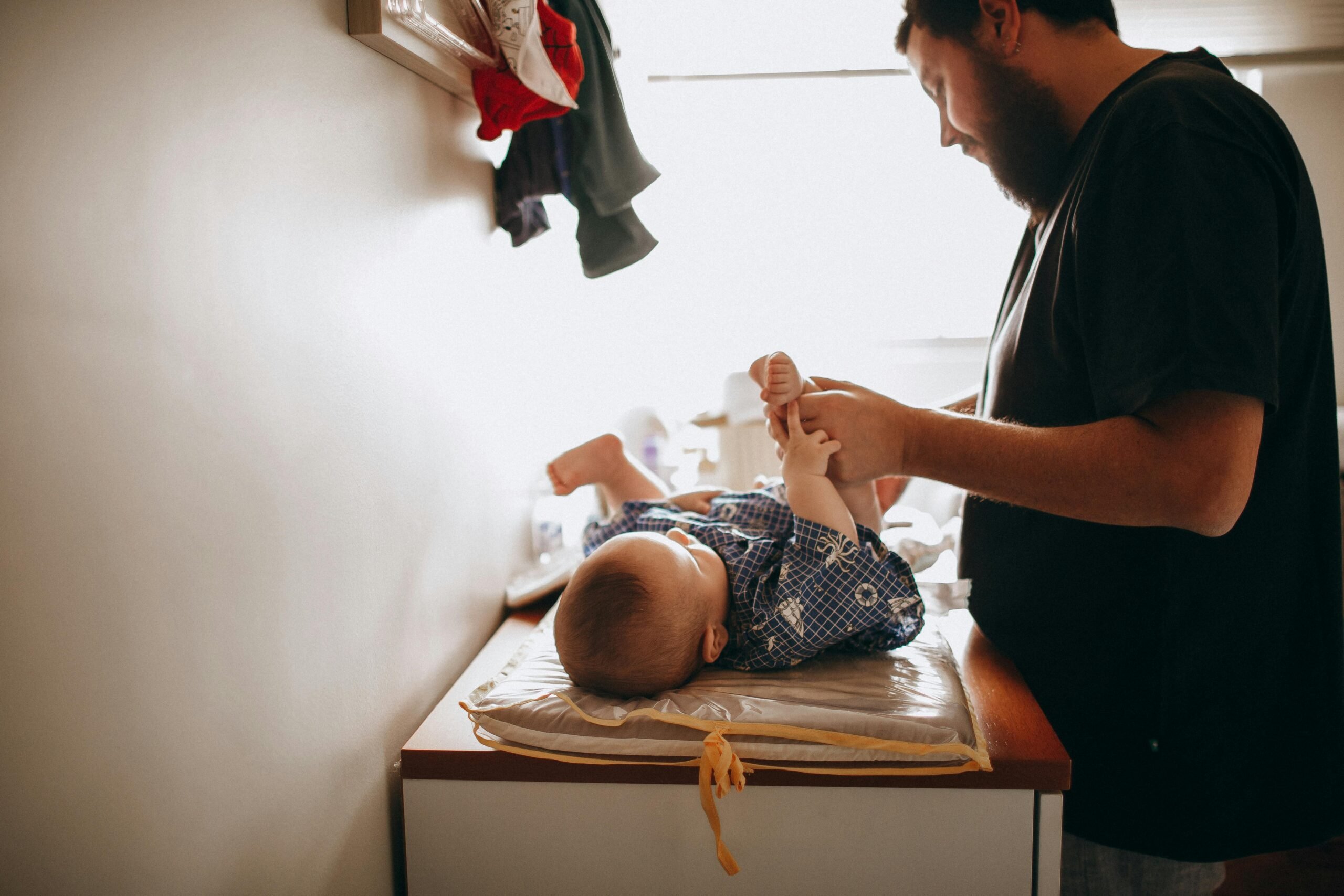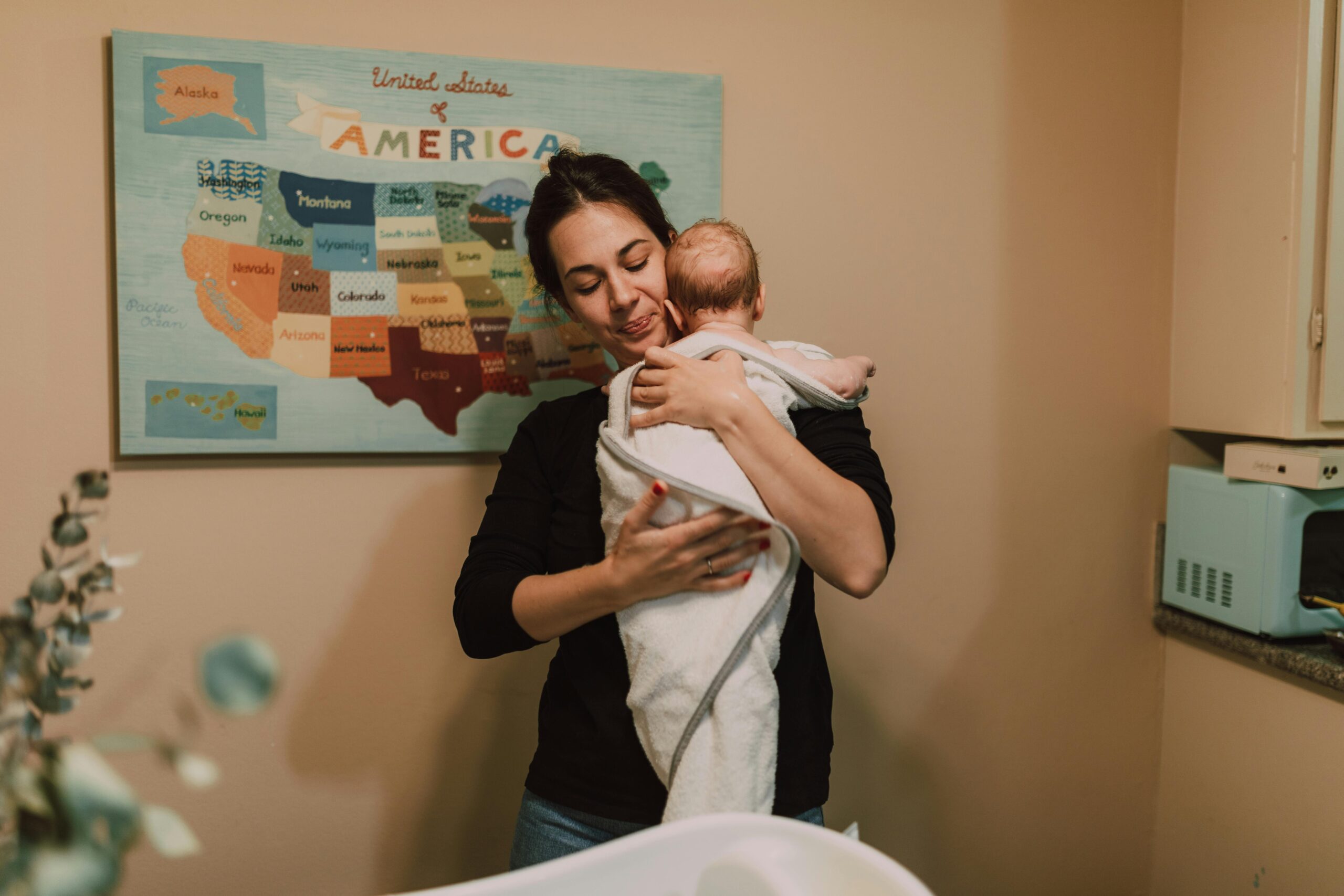Your cart is currently empty!
Expert Claims Parents Should Ask Babies for Permission Before Changing Diapers

It’s the kind of headline that instantly divides the internet—equal parts ridicule, outrage, and curiosity. But buried beneath the viral claim that “parents should ask babies for permission before changing diapers” is a surprisingly thoughtful idea: what if the way we speak to our children from the very beginning shapes how they understand trust, communication, and personal boundaries?
Ask Your Baby for Consent? Where This Idea Came From

Sexuality educator Deanne Carson sparked a wave of attention when she appeared on ABC News in Australia and said parents should ask their baby’s permission before changing a diaper. Her suggestion was simple in concept but explosive in interpretation: “I’m going to change your nappy now, is that okay?”
Carson acknowledged, “Of course, a baby is not going to respond ‘yes mum, that is awesome, I’d love to have my nappy changed.’” But, she explained, “if you leave a space and wait for body language and wait to make eye contact, then you are letting that child know that their response matters.”
Her comments were made in the context of promoting a “culture of consent” starting from birth. Carson, who describes herself as a sexuality educator and author, works primarily with children aged three and up. But she believes early modeling by parents can set the stage for healthy boundaries later in life.
Social Media Reacts: Between Outrage and Misunderstanding
Social media quickly lit up with jokes and backlash. Many mocked the idea by imagining absurd scenarios—like letting babies sit in soiled diapers for days because they didn’t say yes.
While the laughter may stem from genuine confusion, it often drowns out the more serious conversation about how we raise children to understand their rights and boundaries.
Carson herself responded to the criticism by reiterating that her work follows international standards in child safety education. She also pointed out that mocking these efforts can harm abuse survivors by dismissing the value of consent education.
The Intent Behind the Controversial Advice
Let’s be clear: Carson did not say parents must wait for actual consent from a baby before cleaning up a dirty diaper. Critics who interpret the idea this way are taking it far too literally. Babies, by their very nature, lack the verbal capacity and cognitive development to consent in the traditional sense—and no responsible adult would suggest otherwise.
What Carson proposed was more of a behavioral philosophy than a rulebook. The point is not whether the baby can say yes, but whether the parent treats the child as a person whose responses and cues matter. That brief pause—where a caregiver speaks to the baby, waits, and observes—is about connection and acknowledgment. It’s a way of saying, “You matter. Your body matters.”
Framing interactions this way has deeper psychological implications. It encourages a pattern of mutual respect and communication that children carry with them into toddlerhood and beyond. Over time, children learn that their reactions and feelings are worth noticing, which can build self-esteem and help them understand personal boundaries.
So no, asking your baby for permission isn’t about surrendering parental judgment to an infant. It’s about laying the groundwork for future understanding—one moment, one diaper change, at a time.
What Science Says About Teaching Consent to Young Children

The concept of teaching consent from infancy is gaining traction among psychologists and child development professionals. It’s not about sex but about helping children understand boundaries, safety, and communication.
By consistently using respectful language and observing children’s responses, caregivers can build trust and teach that their voice matters. This foundation can serve them later in life when more serious boundaries need to be recognized and upheld.
The American Academy of Pediatrics (AAP) encourages parents to use anatomically correct names for body parts, avoid forcing physical affection, and stop actions if a child shows discomfort. According to Dr. Shalon Nienow, MD, FAAP, “Children and teens who feel in control of their bodies are less likely to fall prey to sexual abusers. And if they do suffer abuse, they are more likely to tell a trusted adult.”
Dr. Nienow also notes that children taught about bodily autonomy are more likely to disclose abuse and recognize when something feels wrong. Similarly, the “RIE” (Resources for Infant Educarers) approach promotes respectful caregiving from birth, encouraging parents to treat babies as capable individuals worthy of respectful interactions.

The Bigger Lesson on Respect and Autonomy
The debate over asking babies for permission before changing their diapers is about more than just a parenting trend. It reflects the evolving conversations around consent, autonomy, and respectful communication. While critics argue that the idea is impractical, supporters see it as a small but meaningful way to instill a sense of bodily autonomy from an early age.
At its core, this discussion highlights a broader shift in modern parenting. More than ever, parents and caregivers are being encouraged to create environments where children feel heard, respected, and empowered. While babies may not understand consent in the traditional sense, the way adults interact with them can shape their early perceptions of communication, trust, and personal boundaries.
Ultimately, parenting is about balance. Teaching children that their bodies belong to them is important, but so is ensuring their basic needs are met. Whether or not parents choose to implement this approach, one thing is clear—the conversation around consent and respect in parenting isn’t going away anytime soon.
This article is co-published with Social Sweethearts GmbH
